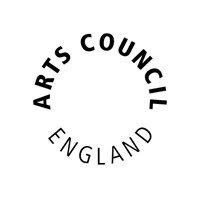Picturing High Streets Collection
A national collection of 377 images that tell the stories behind the shopfronts on the English high street.

Emerging artist Khatun describes in her own words how she worked in her hometown of Leicester for a 2-year Picturing High Streets residency supported by QUAD/FORMAT.
Khatun collaborated with cultural partners and diverse communities in the Leicester High Streets Heritage Action Zones area of Church Gate and Granby Street. She also collaborated closely with Jamila's Legacy, a mental health organisation.
Photographs from Khatun's Picturing High Streets residency have entered the Historic England Archive, the nation’s archive for England’s historic buildings, archaeology and social history. They are part of the new Picturing High Streets national photography collection.
"This Picturing High Street’s photo project is a look at what makes a city great. Photographing shopkeepers, everyday passersby and facilitating workshops locally, has allowed me to carry out my intent: to champion people and my city.
"This body of work was made possible through trust, kindness and a mutual understanding.
"The intent has always been to preserve; preserve the city, preserve its people, preserve the stories, preserve the kinship, preserve the love we fall in and out of, and preserve home.
"And to be seen. Photography is a powerful means of archiving, and one which is incredibly crucial. It is important for anyone and everyone to have access to a records office, an organised archive system, in which they are able to look up the rich histories of different spaces and places, to see the people that lived in these cities or passed through, to see people that look like them, to have their existences and histories validated."
"Jamila’s Legacy are a brilliant Mental Health organisation in Leicester, who aim to work with the huge (but are not restricted to) South Asian diaspora. We teamed up to explore the notion of archiving, story-telling and memories. We did this through conversation, photo-walks, writing and collaging workshops.
"We created a space in which we gave power to our existence in Leicester. Mapping out journeys we took through the Heritage Action Zones when we were younger, with friends, running errands, needing space.
"The workshops, which eventually produced collages, honoured these journeys and stories that many had shelved away, assuming their unimportance."
"The residency was massively influenced by The Handsworth Project and Hidden History - Lost Portraits of Bradford.
"Initially, I set out to create a structured body of work that focuses more on a set of questions that I pose to individuals, about Leicester, Church Gate and Granby Street. Upon shooting however, I quickly realised that there was more to the project than a standardised question and answer setup.
"Photographing all the people I came across, gave me an insight into a Leicester that I hadn’t been privy to before. My understanding of Leicester had always been selective, as it has been curated by my experiences, memories and fondness. This project has shone a light on what Leicester means to different people. For some, it has always been home, for others, it is new. Some people are hoping to just pass through. Some didn’t even choose to be here. Some don’t think much of the Heritage Action Zone, whilst others are more hopeful."
"These portraits taught me to remove expectations and any unconscious reservations. Through it, I developed a fresher understanding of what Leicester means to different people, and what it means to me. The accompanying text therein, are not interviews, but incorporate the moments before, during and after the image was taken. It is a mixture of myself, and those being photographed."
"The portraits sometimes include a netting backdrop, which I bought from Dunelm (who actually started out in Leicester Market, selling curtains, in 1979. It all came full circle!). It became more than a means of providing neater imagery, but instead, was used to provide a familiar emblem. A loose nod to Leicester’s rich history with textiles, it is a reminder of home, childhood and growing up – some of the prevalent themes in this work.
"I strongly believe that Leicester City, and the historic streets of Church Gate and Granby Street, would not be what they are without the people that hold it up. The shopkeepers that have faced ongoing hardships, the kids figuring out adolescence, young people wanting to find bigger things, people who find themselves here, people floating through, bustling coffee shops, jewellery shops on quiet roads, barbers with more buzz from the people than the trimmers. Corners and pockets of endless heritage. It all deserves archiving and preservation."
Please click on the gallery images to enlarge these portraits by Khatun.
"This residency has seen me through birthdays and a lot of personal and artistic growth. It has meshed me into a community that I have always spoken so highly of. I was able to refresh Leicester’s archive. I can’t wait for people to look back at what Leicester was; I hope it expands in its welcoming of people, and continues to celebrate its diversity."
A national collection of 377 images that tell the stories behind the shopfronts on the English high street.





Our website works best with the latest version of the browsers below, unfortunately your browser is not supported. Using an old browser means that some parts of our website might not work correctly.